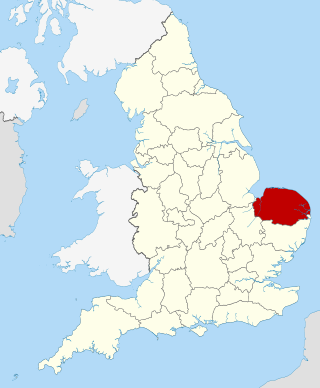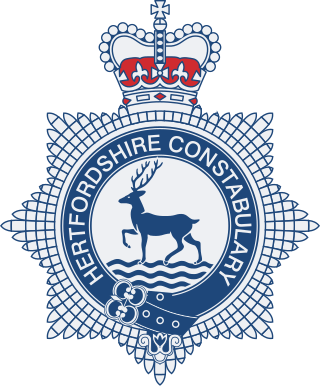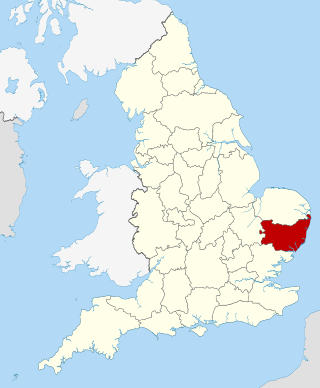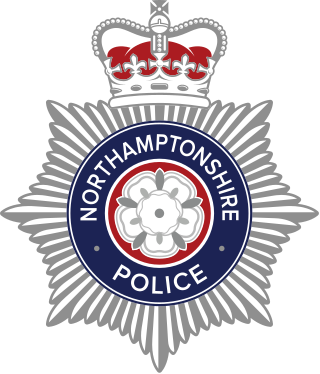
The Metropolitan Police Service (MPS), formerly and still commonly known as the Metropolitan Police, or simply the Met, is the territorial police force responsible for law enforcement and crime prevention within Greater London. In addition, it is responsible for specialised tasks throughout the United Kingdom, such as dealing with counter-terrorism throughout the UK, and the protection of certain individuals, including the monarch, royal family, governmental officials, and other designated figures. It is also referred to as an eponym as Scotland Yard or the Yard, after the location of its original headquarters in Great Scotland Yard, Whitehall in the 19th century. The Met is presently headquartered at New Scotland Yard, on the Victoria Embankment.

Thames Valley Police is the territorial police force responsible for policing the Thames Valley region, covering the counties of Berkshire, Buckinghamshire and Oxfordshire in South East England. It is the largest non-metropolitan police force in England and Wales, covering 2,218 square miles (5,740 km2) and a population of 2.42 million people.
A police community support officer, or as written in legislation Community Support Officer, is a uniformed member of police staff in England and Wales, a role created by Section 38(2) of the Police Reform Act 2002, which was given Royal Assent by Queen Elizabeth II on 24 July 2002. They are not warranted, but hold a variety of police powers and the power of a constable in various instances by the forty-three territorial police forces in England and Wales and the British Transport Police.
Police ranks are a system of hierarchical relationships in police organisations. The rank system defines authority and responsibility in a police organisation, and affects the culture within the police force. Usually, uniforms denote the bearer's rank by particular insignia affixed to the uniforms.

West Midlands Police is the territorial police force responsible for policing the metropolitan county of West Midlands in England.

Avon and Somerset Police is the territorial police force responsible for law enforcement in the five unitary authority areas of Bristol, Bath and North East Somerset, North Somerset, Somerset, and South Gloucestershire, all in South West England.

Bedfordshire Police is the territorial police force responsible for policing the ceremonial county of Bedfordshire in England, which includes the unitary authorities of Bedford, Central Bedfordshire and Luton. Its headquarters are in the town of Kempston in Bedford Borough.

Cleveland Police is a territorial police force in England responsible for the policing the boroughs of Middlesbrough and Redcar and Cleveland in North Yorkshire and Hartlepool and Stockton-on-Tees in County Durham within North East England. The force is overseen by the Cleveland Police and Crime Commissioner. Since 2022, the chief constable has been Mark Webster.

Derbyshire Constabulary is the territorial police force responsible for policing the county of Derbyshire, England. The force covers an area of over 1,000 square miles (3,000 km2) with a population of just under one million.
Chief superintendent is a senior rank in police forces, especially in those organised on the British model.

Norfolk Constabulary is the territorial police force responsible for policing Norfolk in East Anglia, England. The force serves a population of 908,000 in a mostly rural area of 2,079 square miles (5,380 km2), including 90 miles (140 km) of coastline and 16 rivers, including the Broads National Park. Headquartered in Wymondham, Norfolk is responsible for the City of Norwich, along with King's Lynn, Great Yarmouth and Thetford. As of March 2023, the force has a strength of 1,897 police officers, 163 special constables, 1,318 police staff/designated officers, and 103 police support volunteers. The Chief Constable is Paul Sanford, and the Police and Crime Commissioner (PCC) is Sarah Taylor (Labour).

Merseyside Police is the territorial police force responsible for policing Merseyside in North West England. The service area is 647 square kilometres with a population of around 1.5 million. As of September 2017 the service has 3,484 police officers, 1,619 police staff, 253 police community support officers, 155 designated officers and 208 special constables. The force is led by Chief Constable Serena Kennedy.

Hertfordshire Constabulary is the territorial police force responsible for policing the county of Hertfordshire in England. Its headquarters is in Welwyn Garden City. The current chief constable is Charlie Hall. As of March 2019, the force consists of over 1,900 police officers, 235 PCSOs, and over 1500 police staff, as well as being supported by more than 410 special constables.

Dorset Police is the territorial police force responsible for policing the county of Dorset in South West England, which includes the largely rural area covered by Dorset Council, and the urban conurbation of Bournemouth, Christchurch and Poole.

Durham Constabulary is the territorial police force responsible for policing the council areas of County Durham and Darlington in North East England. It does not cover all of the ceremonial or historic area of Durham, parts of which are covered by the neighbouring forces of Cleveland Police and Northumbria Police. The other neighbouring forces are Cumbria Constabulary to the west and North Yorkshire Police to the south.

The Hampshire and Isle of Wight Constabulary is the territorial police force responsible for policing the counties of Hampshire and the Isle of Wight in South East England.

Staffordshire Police is the territorial police force responsible for policing Staffordshire and Stoke-on-Trent in the West Midlands of England. It is made up of 11 local policing teams, whose boundaries are matched to the nine local authorities within Staffordshire.

Suffolk Constabulary is the territorial police force responsible for policing Suffolk in East Anglia, England. The force serves a population of 761,000 in a mostly rural area of 1,466 square miles, including 49 miles of coastline and the Southern part of the Broads National Park. Headquartered in Martlesham, Suffolk is responsible for Ipswich, Lowestoft, Bury St Edmunds and Felixstowe. As of March 2023, the force has a strength of approximately 1,399 police officers, 116 special constables, 917 police staff/designated officers, 33 PCSO's and 123 police support volunteers. The Chief Constable is currently Rachel Kearton, and the Police and Crime Commissioner Tim Passmore (Conservative).

Northamptonshire Police is the territorial police force responsible for policing the county of Northamptonshire in the East Midlands of England, in the United Kingdom.
Plymouth City Police was the city force for Plymouth, Devon, from 1928 to 1967. The force’s title was conferred upon it when the borough of Plymouth achieved city status in 1928.


















